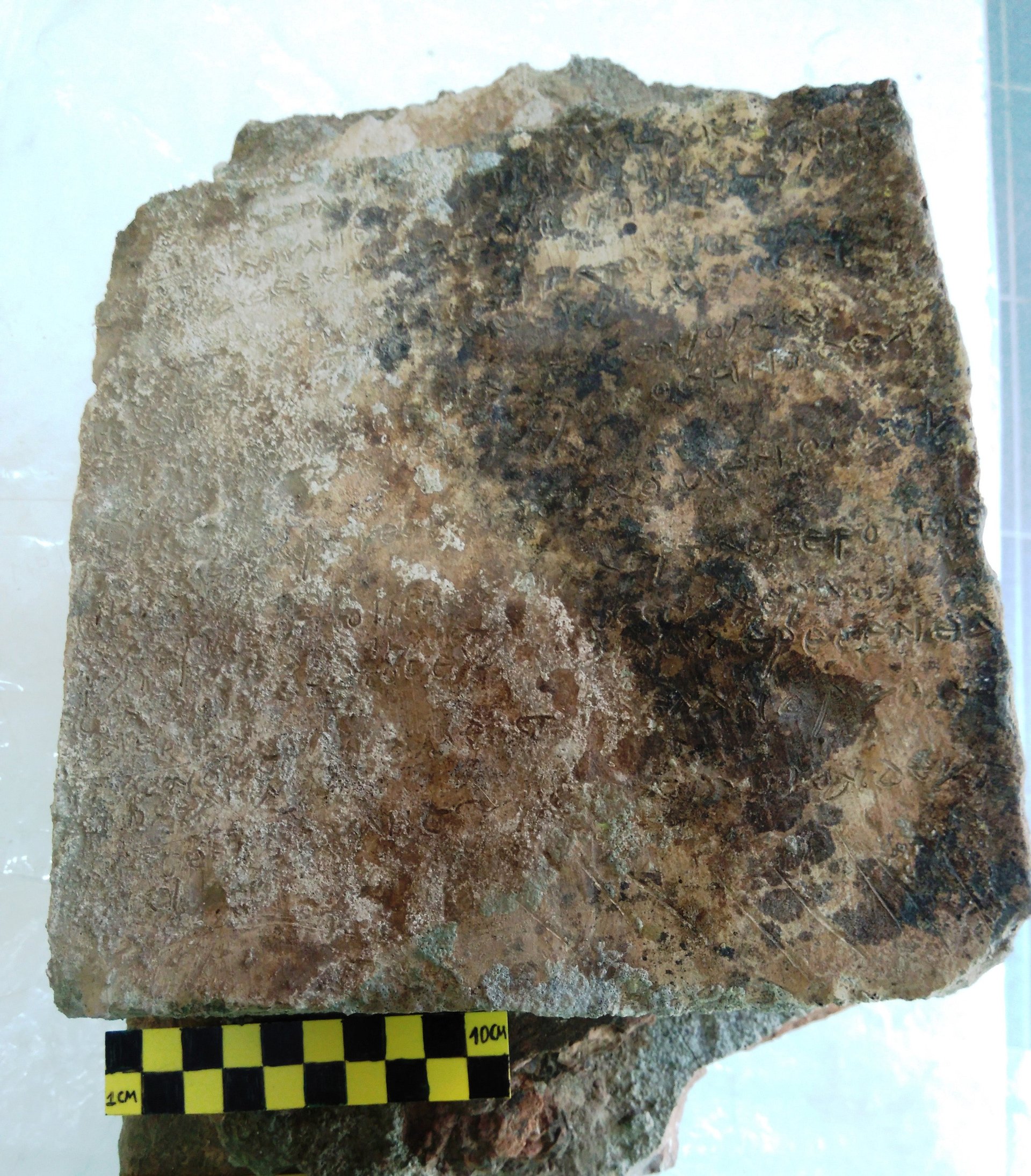Researchers have found what could be the oldest written lines from Homer’s “Odyssey”
Greek and German archaeologists have found what could be the oldest known written record from Homer’s Odyssey.


Greek and German archaeologists have found what could be the oldest known written record from Homer’s Odyssey.
The clay tablet has been preliminarily dated by researchers as originating in the third century AD. The archaeologists found the tablet after three years of excavation near the Temple of Zeus at the ancient site of Olympia, Greece.
“If this preliminary dating is confirmed,” the Greek ministry of culture writes in a press release (link in Greek), “Then this clay tablet will maybe hold the oldest written excerpt of Homer’s volumes that have ever come to light, and constitutes, apart from its uniqueness, one great archaeological, literary, and historical artifact.”

The tablet contains 13 verses from Book 14 of the poem, in which Odysseus has returned to his home of Ithaca disguised as a beggar, and he meets Eumaeus, a swineherd and once his slave. Eumaeus impresses the protagonist with his persistent loyalty to his master, and his hospitality, despite the fact that he has so little.
Scholars believe that Homer’s poem, originally intended for oral performance, was written around 675-725 BC. What survives today is descended from handwritten Greek versions. The poem was printed for the first time in 1488, in Florence, in modern-day Italy.